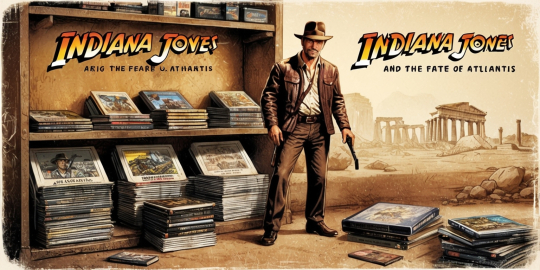
Indiana Jones and the Great Circle takes place to follow this trend, arriving with just a single disc while necessitating an additional download. The situation raises questions about game preservation and backward compatibility. Xbox has made significant strides in the digital aspect, allowing gamers to experience titles from past generations on the latest Xbox Series. However, their approach to physical releases appears to reflect an opposite philosophy.
The latest instance is S.T.A.L.K.E.R. 2: Heart of Chornobyl. Rewritten: S.T.A.L.K.E.R. 2: Chornobyl's Heart, released on 21 November. Players who purchased the physical version, exclusive to the Xbox Series, soon discovered that it included only one disc. To fully enjoy the game, a hefty 150GB download was required on the console, accompanied by significant updates that reinstated previous data multiple times within the initial days. Now, just three weeks later, Indiana Jones and the Great Circle appears ready to present gamers with a similar challenge.
According to reports from a user, who shared their experience on social media, the Indiana Jones physical edition also comes with only one disc, mandating an online download for the rest of the game. This early buyer even noted that, despite having purchased the physical version, the system would prevent access until 9 December, as it's tied to the standard edition's launch.
This scenario highlights a concerning trend, creating tension between gamers and game developers. Many players feel they should have complete ownership of the games they purchase, yet companies insist that the transactions merely grant a "license" to access the gameplay. The current approach raises an important question: Is Xbox’s strategy with physical game formats truly a wise decision?